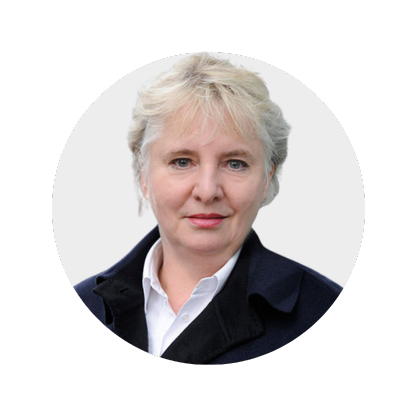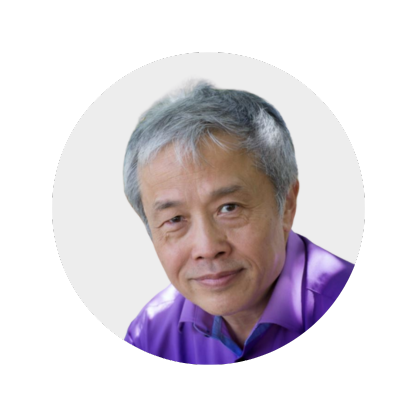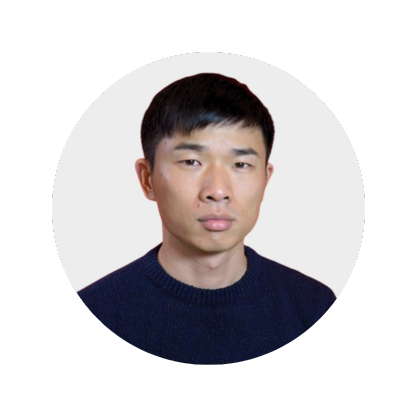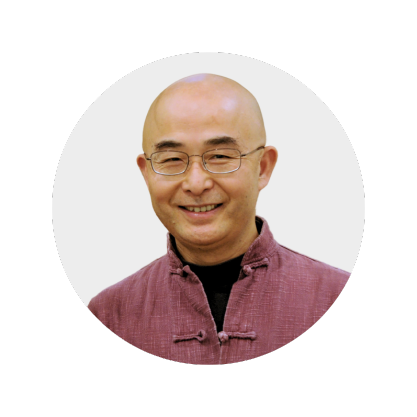There is movement in the dispute over the EU Commission’s countervailing duties on electric vehicle imports from China. Before they come into force on July 4, both sides want to go into a closed session to see whether and how the European tariff increases can still be averted.
German Chancellor Olaf Scholz is pleased “that the EU Commission is offering the Chinese side further talks in the ongoing anti-subsidy proceedings.” However, Scholz said on Monday that it was also clear “that we will also need serious movement and progress from the Chinese side.” He wants to see “amicable solutions,” but “of course, we must protect our economy from unfair trade practices.”
Coming from him, this sounds like an open challenge, as Scholz seemed to give the impression during his last trip to China that he wanted to do everything but make demands of the Chinese. However, after the intensive talks between Economy Minister Robert Habeck and the Chinese side last weekend, Scholz also seems to be daring to come out of cover. In any case, it is an important signal ahead of the negotiations that Europe is united in pushing for Chinese concessions.
Jörn Petring has written about Beijing’s likely arguments in the negotiations. It is based on a study by the US thinktank CSIS, which calculated who has subsidized whom, when and how. The result: Beijing certainly has one or two arguments in support of the Chinese position. However, the “very conservatively” calculated 231 billion in subsidies to companies like SAIC is so huge that Beijing may find it hard to successfully portray itself as a victim.
Carolyn Braun explains how a company can avoid falling victim to countervailing duties using the German SME Ebm-Papst as an example. The company significantly increased its investments in China and interprets this as a de-risking strategy. The core idea is a very high degree of localization throughout different world regions. That sounds good, but it requires certain funds.
And finally, don’t miss our ranking of the most important China decision-makers: Today, we’re looking at the top 10 from society.


Over the past 15 years, China has pumped more than 231 billion dollars in subsidies into the development of its domestic EV industry. This is the conclusion of a study by the US think tank CSIS. The analysis by the team led by China expert Scott Kennedy breaks down in detail how the government has financially supported its companies. In response, the United States has already imposed countervailing duties. The EU also recently announced extra tariffs on EV imports from China.
But Beijing refuses to accept this. The Chinese government wants to persuade the EU Commission in negotiations to lift the tariffs – and fast, before the tariffs come into force on July 4. This was reported by the state-controlled Chinese newspaper Global Times on Monday. Initial talks could begin as early as this week.
China will argue that the EU’s talk of “unfair” practices is too simplistic. Yet the Europeans formulate their accusations mildly. The US even describes China’s subsidies as “criminal.” The CSIS study now sheds light on arguments with which the EU and China will likely enter the negotiations.
Just over half of government support for the Chinese EV industry consisted of tax exemptions, making the cars more affordable for buyers. The remainder comprised additional buyer rebates, government funding for infrastructure such as charging stations, government procurement of electric vehicles and funding programs for research and development.
“Chinese EVs have benefitted from massive industrial policy support,” Kennedy writes. However, he calls the estimates “highly conservative” as it does not include programs at the local level. They also do not include the generally low costs of land, electricity, and loans from which manufacturers have benefited. The team also did not include aid for Chinese battery manufacturers.
Nevertheless, Beijing will present a version that emphasizes that subsidies have steadily decreased in relation to the industry’s total revenue – from over 40 percent in the early years to just 11.5 percent in 2023, showing that support for the young industry has decreased over time. In absolute terms, this means that support per vehicle has shrunk from 13,860 dollars in 2018 to just under 4,600 dollars in 2023. This sum is less than the 7,500 dollars US buyers receive for certain vehicles under the Inflation Reduction Act. Similar purchase incentives also exist or have existed in the EU.
According to Kennedy, supporters of the tariffs could argue that 15 years of massive state aid have already drastically changed the market. This would make it difficult for manufacturers in other countries to compete. For example, China still has around 200 EV manufacturers that produce more than the domestic market needs. Despite or perhaps because of the many government subsidies, only a handful of brands are profitable. “In a well-functioning market economy, firms would more carefully gauge their investment in new capacity,” Kennedy writes. A large gap between supply and demand would typically lead to mergers or closures.
Kennedy assumes that the continued subsidies are not part of a plan for global dominance, but rather a result of China’s inefficient economic system. This is also the opinion of German companies that oppose the tariffs. “If you look at the cause of this overcapacity, it is essentially because companies have built up more capacity and demand has not been what they expected,” argues the German Chamber of Commerce in China, for example. Ultimately, there will be a consolidation. However, this medium-term effect will not be resolved “within the next two to three years.”
The authors of the CSIS study consider China’s gamble on EVs to be “incredibly risky.” They believe that many newly founded companies may not survive the fierce competition at home, combined with growing protectionism overseas. However, they are confident that the surviving companies will mature into very important global players.
However, the fact that tariffs are now the response of Europeans and Americans is also the result of Western inconsistency, the study says. “In general, Western automakers and governments have dilly dallied and not been aggressive enough,” Kennedy criticizes. He argues that there is still insufficient pressure on car manufacturers to electrify their fleets and offer more affordable models. It is clear that the United States and other countries cannot defend their interests without stepping up “both the defensive and offensive sides” to develop their own industries. In other words, the EU could give manufacturers more charging stations.

For the German fan manufacturer Ebm-Papst, de-risking means more, not less, investment in China. From the medium-sized company’s point of view, this is a necessity owing to the geopolitical situation. Ebm-Papst’s strategy is called “local for local.” Klaus Geissdoerfer, CEO of Ebm-Papst since 2021, explains: “We are localizing our business in each of the three major regions – the Americas, Europe and Asia – with the aim of ensuring that these divisions can also function independently and autonomously in the event of a crisis.”
According to him, it is a matter of resilience to factors beyond the company’s control – “for example, freight costs that go up and down due to rebels and fluctuating energy prices, or the threat of tariffs.” He sees local production as the best protection against protective tariffs: “Then I have the entire supply chain on the ground and therefore the certainty that I can continue to deliver at the costs I have planned with.”
In fact, the company is by no means alone in this. Despite the German government’s de-risking approach, many companies have stepped up their investments again. In 2023, direct investments increased by more than four percent to a total of 11.9 billion euros. It was probably no coincidence that Vice Chancellor Robert Habeck was in China with a delegation consisting mainly of SME entrepreneurs.
However, there are also signs that companies are reorienting themselves. The SME Travel Report 2024 by HR Works recently revealed that China’s share of the top 10 destinations outside Europe for SME business travelers has fallen from 18.6 to 10.1 percent over the past five years. This is even though Asia, with 45.3 percent of all non-European business trips in 2023 – ahead of North America with around a third of trips – is the most important non-European destination for business travelers from small and medium-sized enterprises. It is unclear how significant this data actually is. After all, many SMEs long have their own Chinese executives on site, which means fewer trips to China are required.
Ebm-Papst is also working towards reducing the rotation between continents. According to its CEO, the manufacturer’s localization rate in China is now over 90 percent: “We are at over 95 percent for suppliers and between 85 and 90 percent for customers.” The company is also spending extra on this strategy: In the 2023/24 financial year, the manufacturer invested 25 million of the 187 million euros company-wide investment in the expansion of the plant in Xi’an alone, where a production area of 27,000 square meters is currently being built. Another site in southern China is already in the pipeline.
Ebm-Papst has been active in China since 1996, and the Asia Pacific CEO Thomas Nuernberger has worked in the People’s Republic for over a decade. Of the approximately 1,900 employees at the sites in Shanghai, Qingdao, Xi’an, Beijing and Hong Kong, only three are from Germany. In the 2022/23 financial year, the medium-sized company generated sales of around 380 million euros in the Asia-Pacific region – that is 15 percent of the approximately 2.5 billion euros that the company as a whole generated in the same period, and the trend is rising. The company currently still generates 20 percent of its revenue in Germany.
Customers are increasingly expressing their desire for local production: “In China, customers tell us they want to be US-free,” says Geissdoerfer. In the US, customers tell us they want to be China-free.” This means supplies from the United States to China or vice versa.
This is becoming a competitive factor, and “the greater the tension becomes, the more likely it will one day become a necessity – and thus an advantage for us.” This also applies to the company’s significantly expanded plant in the United States. The impression is that “it is already too small to prepare for all the geopolitical uncertainties.” The security the economy enjoyed ten years ago with reasonably stable framework conditions no longer exists.
Even if Geissdoerfer complains that cooperation is often “disrupted at the highest political level due to the contradictory messages from Germany to China and in the opposite direction,” the 50-year-old continues to have a positive outlook on China. The newly inaugurated plant in Shanghai is producing at maximum capacity: “We are currently gaining market share and are very positive about business development.” The company reports excellent relations with the local government and feels very well-supported. “We sometimes find more open ears for our concerns in China than in Germany.”
Another reason for the localization strategy is that the specialist for air and drive technology can better adapt to the respective local market requirements and customer needs, is able to deliver faster due to short shipping distances and can position itself well against competitors: “If we are successful in their home market, they have to compete with us locally. This makes it less likely for them to come to Europe.”
Industry President Siegfried Russwurm sees the announced negotiations in the tariff dispute between the EU and China as a first step towards avoiding a trade war. The mere fact that they will be talking to each other is a “good sign,” the President of the Federation of German Industries (BDI) told Deutschlandfunk radio on Monday.
“Coercive measures are the last thing we can wish for Germany as an export nation.” He stressed the need to maintain a balance. On the one hand, competition violations should be clearly sanctioned, but on the other hand, Germany must also remain an advocate of open trade. “There are not many countries in the world that export 40 percent of their business,” Russwurm said.
The dispute over planned European import tariffs on Chinese electric cars saw some movement over the weekend: China and the EU apparently want to meet this week for talks on a possible settlement of the tariff dispute. In Beijing, however, German Economy Minister Robert Habeck demanded reciprocal measures from the Chinese side in return for canceling the European EV tariffs.
At the BDI on Monday, Habeck warned of a disintegration of the global economy into zones. “Everything would become more expensive again,” said the Green Party politician. That is why it would be essential to find a sensible solution to the issue of countervailing duties. Habeck predicts the end of globalization should the conflict lead to a tariff war. “There would be less prosperity, fewer people would have access to energy, clean water, education, healthcare, and so on.”
Russwurm urged the EU to maintain a balance in the customs matter. “The 27 EU countries have different priorities,” he said. This makes it all the more important for the German government to make it clear that the largest economy in the EU must not fall over the edge. “It must also be in the interests of the European single market that we continue to be successful. After all, exports from Germany are also exports from the European Union,” said Russwurm.
The extra duties of up to 38.1 percent will be levied from July 4. The EU Commission plans to continue its review until November 2 and then set final rates, usually for five years. The Commission justified the move with Chinese state subsidies distorting competition. rtr/rad
Allianz Global Investors (AGI), one of the investment divisions of German insurer Allianz, has become the first foreign company to own a stake in Chinese pension insurance giant Guomin Pension. AGI has been allowed to subscribe to newly issued shares representing a two percent stake worth 228 million yuan (31.40 million US dollars), the Chinese company said in a statement released on Monday.
Guomin Pension was jointly established in 2022 by China’s largest banks and insurers to promote the development of the country’s private pension market. With AGI’s investment, the pension giant’s registered capital will increase to 11.4 billion yuan, making it one of the most capitalized asset managers in China.
The pension market in China is huge, as the country’s society is aging rapidly. According to calculations, ten million people over the age of 60 are added every year. In 2022, 14.9 percent of the Chinese population was still over 65; by 2050, the People’s Republic will already have 37.8 percent senior citizens. In absolute figures, that would mean 520 million people of retirement age.
According to a media report, the government in Beijing is planning to gradually raise the retirement age in view of the rapidly aging society. The current retirement age is one of the lowest in the world. It is currently 60 years for men, 55 years for female office workers and 50 years for women working in factories. rtr/rad
The Chinese embassy in Berlin reacted with harsh words to the 2023 annual report of the Federal Office for the Protection of the Constitution (BfV). “The chapter on China contained in the report shows complete ignorance of the national situation in China and hostility towards the Chinese political system.” According to a public statement on the embassy’s website, the Chinese government and population are discredited and a completely false picture of China’s policy towards Germany is painted.
Some passages in the report could hardly be more absurd, the statement continues. “With regard to China’s promotion of its national image, it is implied to be political propaganda and the dissemination of false information.”
In the preface to the BfV annual report, Federal Minister of the Interior Nancy Faeser writes: “The threat to our democracy and its institutions from espionage, sabotage, disinformation and cyberattacks has reached a new dimension. Foreign powers such as Russia, China and Iran are using their intelligence agencies extensively for espionage in and against Germany.”
The BfV’s 2023 annual report states, among other things: “China is striving to influence the international order in line with the interests of its one-party system and to relativize the foundations of the rules-based order. This leads us to expect further intensifying state-run espionage and influence activities.” And further: “The long-term approaches of Chinese cyber espionage threaten the digital sovereignty of Germany and Europe.” rad


Sabine Stricker-Kellerer – lawyer & Co-Chairwoman of the Sino-German Dialogue Forum
Sabine Stricker-Kellerer studied law and sinology as a minor subject in Munich. In 1980, she took a rather unusual step at the time: she went to China and gained her first legal experience there. It was followed by a Master’s in Chinese law at Harvard Law School. In 1985, Stricker-Kellerer founded the first office of a European law firm in China. Since then, she has been advising European companies operating in China. She is an arbitrator of the China International Economic and Trade Arbitration Commission (CIETAC), co-chair of the Sino-German Dialogue Forum and a member of the board of trustees of the Mercator Institute for Chinese Studies (Merics).

Ming Shi – freelance journalist and author
Shi Ming worked as an announcer, translator and journalist at Radio Beijing and later switched to the Chinese economy. After the bloody suppression of the protests in Beijing in 1989, he went into exile in Germany, where he has since worked as a freelance journalist and publicist for media such as ARD and FAZ. With the sinologist Daniel Leese, Shi recently published the volume of essays “Chinesisches Denken der Gegenwart,” in which key texts by Chinese intellectuals are translated into German for the first time.

Michael Kahn-Ackermann – Founding Director of the Goethe-Institut China
Michael Kahn-Ackermann’s professional life is all about cultural mediation. After studying sinology, economics and political science in Munich, he studied modern Chinese history at Peking University in 1975. From 1988, he was the founding director of the Goethe-Institut in Beijing. This was followed by posts in Moscow and Rome. Kahn-Ackermann then returned to the Goethe-Institut in Beijing as director. The sinologist has translated numerous texts of contemporary Chinese literature into German. He is China Advisor to the Mercator Foundation in Beijing. He also worked for several years as an advisor to the headquarters of the Confucius Institutes in Beijing, promoting the Chinese language and culture.

Christine Althauser – former Consul General in Shanghai
Christine Althauser has always had a keen interest in international relations. While studying sinology, political science, and Slavic studies in Heidelberg, she spent several semesters abroad in Moscow and Taiwan. She began her career in the diplomatic service in 1987 and later worked at the German Embassy in Moscow, held the post of German Ambassador to North Macedonia and was Consul General in Shanghai from 2017 to 2021. Christine Althauser has since returned to Germany and is a member of the advisory board of the China Netzwerk Baden-Wuerttemberg. Although officially retired, Althauser is still involved in various projects.

Fan Popo – filmmaker and LGBTQ activist
Filmmaker Fan Popo, born in Jiangsu in eastern China, won several awards for his films, which deal with themes such as same-sex marriage, transgender and gender discrimination, including the “Prism Award” from the Hong Kong Lesbian and Gay Film Festival. In Beijing, he organized the “Beijing Queer Film Festival” for ten years under the radar of the authorities. Although his works cannot officially be screened in his home country, he is one of China’s best-known LGBTQ activists. He now lives in Berlin, working on his feature film debut.

Liao Yiwu – writer
Liao Yiwu is one of the most renowned exiled Chinese writers. His works, such as “The Corpse Walker: Real Life Stories: China From The Bottom Up” and “Bullets and Opium: Real-Life Stories of China After the Tiananmen Square Massacre,” give a voice to the outcast and persecuted. He was awarded the Geschwister Scholl Prize in 2011 and the Peace Prize of the German Book Trade in 2012.

Karin Betz – translator
Making the literature of Chinese authors accessible to Western readers is a task that literary translator and sinologist Karin Betz has dedicated herself to. Most recently, her translation of the novel “My City” by Hong Kong author Xi Xi was awarded the Helmut M. Braem Translator’s Prize. Betz studied sinology, German studies, philosophy and politics in Frankfurt am Main, Chengdu and Tokyo. Her translations into German include works by Mo Yan, Liu Cixin and Liao Yiwu.

Nora Frisch – Director Drachenhaus-Verlag
With the books published by her Drachenhaus publishing house, sinologist Nora Frisch, who was educated in Vienna, Beijing, Taipei and Heidelberg, aims to show China’s diversity beyond business and politics. The program of her publishing house, founded in 2010, is broad. In addition to novels, there are history books, graphic novels, children’s books and cookbooks as well as classics of Chinese philosophy. Some of these are now used as teaching material in schools and universities, such as “The Building of the Great Wall” by historian Cornelia Hermanns.

Andreas Merzhaeuser – Director German Embassy School Beijing
Andreas Merzhaeuser was already overseas as a teacher and deputy principal at the turn of the millennium: he taught in London for several years. In 2020, he moved to the German Embassy School in Beijing as principal. Apart from his political and historical interests, the German studies and history graduate previously had no connection to China. His tenure is set to last six years, and Merzhaeuser’s agenda focuses primarily on making the school more digital and promoting German language skills. His school also offers a wide range of activities outside the classroom – the Embassy School is the center of the German-speaking community and offers students and parents numerous events.

Daniel Leese – author and professor of sinology
Daniel Leese has been Professor of History and Politics of Modern China at the University of Freiburg since 2012. He has written numerous books on China, including “Mao’s Long Shadow: China’s Handling of the Past,” which was nominated for the German Non-Fiction Prize in 2021. Leese is working on a project about internal communication structures within the Chinese Communist Party. His most recent book, “Chinese Thought of the Present,” which he compiled with journalist Ming Shi, translates and classifies key texts by leading Chinese intellectuals on politics and society into German.
Joerg Endriss will move from Tagesschau Hamburg to the ARD studio in Beijing on July 1. The journalist has been covering China since the 1990s and has already lived in Taiwan for two years.
Arthur Tarnowski is the new Chief Representative of the Heinrich Boell Foundation in China. He will initially work from Berlin and move to Beijing in the fall.
Is something changing in your organization? Let us know at heads@table.media!

Floods, mud and debris slides are threatening the livelihoods of many people in several Chinese provinces these days. Days of rainfall caused severe flooding in Changsha, the provincial capital of Hunan, among other places. Softened soils in the mountainous regions also pose a major risk of landslides. At least eight people died in such slides in Hunan over the weekend. There were further fatalities in the provinces of Guangzhou, Anhui and Guizhou. Another flood alert has been issued for the provincial capital of Changsha on Monday.
There is movement in the dispute over the EU Commission’s countervailing duties on electric vehicle imports from China. Before they come into force on July 4, both sides want to go into a closed session to see whether and how the European tariff increases can still be averted.
German Chancellor Olaf Scholz is pleased “that the EU Commission is offering the Chinese side further talks in the ongoing anti-subsidy proceedings.” However, Scholz said on Monday that it was also clear “that we will also need serious movement and progress from the Chinese side.” He wants to see “amicable solutions,” but “of course, we must protect our economy from unfair trade practices.”
Coming from him, this sounds like an open challenge, as Scholz seemed to give the impression during his last trip to China that he wanted to do everything but make demands of the Chinese. However, after the intensive talks between Economy Minister Robert Habeck and the Chinese side last weekend, Scholz also seems to be daring to come out of cover. In any case, it is an important signal ahead of the negotiations that Europe is united in pushing for Chinese concessions.
Jörn Petring has written about Beijing’s likely arguments in the negotiations. It is based on a study by the US thinktank CSIS, which calculated who has subsidized whom, when and how. The result: Beijing certainly has one or two arguments in support of the Chinese position. However, the “very conservatively” calculated 231 billion in subsidies to companies like SAIC is so huge that Beijing may find it hard to successfully portray itself as a victim.
Carolyn Braun explains how a company can avoid falling victim to countervailing duties using the German SME Ebm-Papst as an example. The company significantly increased its investments in China and interprets this as a de-risking strategy. The core idea is a very high degree of localization throughout different world regions. That sounds good, but it requires certain funds.
And finally, don’t miss our ranking of the most important China decision-makers: Today, we’re looking at the top 10 from society.


Over the past 15 years, China has pumped more than 231 billion dollars in subsidies into the development of its domestic EV industry. This is the conclusion of a study by the US think tank CSIS. The analysis by the team led by China expert Scott Kennedy breaks down in detail how the government has financially supported its companies. In response, the United States has already imposed countervailing duties. The EU also recently announced extra tariffs on EV imports from China.
But Beijing refuses to accept this. The Chinese government wants to persuade the EU Commission in negotiations to lift the tariffs – and fast, before the tariffs come into force on July 4. This was reported by the state-controlled Chinese newspaper Global Times on Monday. Initial talks could begin as early as this week.
China will argue that the EU’s talk of “unfair” practices is too simplistic. Yet the Europeans formulate their accusations mildly. The US even describes China’s subsidies as “criminal.” The CSIS study now sheds light on arguments with which the EU and China will likely enter the negotiations.
Just over half of government support for the Chinese EV industry consisted of tax exemptions, making the cars more affordable for buyers. The remainder comprised additional buyer rebates, government funding for infrastructure such as charging stations, government procurement of electric vehicles and funding programs for research and development.
“Chinese EVs have benefitted from massive industrial policy support,” Kennedy writes. However, he calls the estimates “highly conservative” as it does not include programs at the local level. They also do not include the generally low costs of land, electricity, and loans from which manufacturers have benefited. The team also did not include aid for Chinese battery manufacturers.
Nevertheless, Beijing will present a version that emphasizes that subsidies have steadily decreased in relation to the industry’s total revenue – from over 40 percent in the early years to just 11.5 percent in 2023, showing that support for the young industry has decreased over time. In absolute terms, this means that support per vehicle has shrunk from 13,860 dollars in 2018 to just under 4,600 dollars in 2023. This sum is less than the 7,500 dollars US buyers receive for certain vehicles under the Inflation Reduction Act. Similar purchase incentives also exist or have existed in the EU.
According to Kennedy, supporters of the tariffs could argue that 15 years of massive state aid have already drastically changed the market. This would make it difficult for manufacturers in other countries to compete. For example, China still has around 200 EV manufacturers that produce more than the domestic market needs. Despite or perhaps because of the many government subsidies, only a handful of brands are profitable. “In a well-functioning market economy, firms would more carefully gauge their investment in new capacity,” Kennedy writes. A large gap between supply and demand would typically lead to mergers or closures.
Kennedy assumes that the continued subsidies are not part of a plan for global dominance, but rather a result of China’s inefficient economic system. This is also the opinion of German companies that oppose the tariffs. “If you look at the cause of this overcapacity, it is essentially because companies have built up more capacity and demand has not been what they expected,” argues the German Chamber of Commerce in China, for example. Ultimately, there will be a consolidation. However, this medium-term effect will not be resolved “within the next two to three years.”
The authors of the CSIS study consider China’s gamble on EVs to be “incredibly risky.” They believe that many newly founded companies may not survive the fierce competition at home, combined with growing protectionism overseas. However, they are confident that the surviving companies will mature into very important global players.
However, the fact that tariffs are now the response of Europeans and Americans is also the result of Western inconsistency, the study says. “In general, Western automakers and governments have dilly dallied and not been aggressive enough,” Kennedy criticizes. He argues that there is still insufficient pressure on car manufacturers to electrify their fleets and offer more affordable models. It is clear that the United States and other countries cannot defend their interests without stepping up “both the defensive and offensive sides” to develop their own industries. In other words, the EU could give manufacturers more charging stations.

For the German fan manufacturer Ebm-Papst, de-risking means more, not less, investment in China. From the medium-sized company’s point of view, this is a necessity owing to the geopolitical situation. Ebm-Papst’s strategy is called “local for local.” Klaus Geissdoerfer, CEO of Ebm-Papst since 2021, explains: “We are localizing our business in each of the three major regions – the Americas, Europe and Asia – with the aim of ensuring that these divisions can also function independently and autonomously in the event of a crisis.”
According to him, it is a matter of resilience to factors beyond the company’s control – “for example, freight costs that go up and down due to rebels and fluctuating energy prices, or the threat of tariffs.” He sees local production as the best protection against protective tariffs: “Then I have the entire supply chain on the ground and therefore the certainty that I can continue to deliver at the costs I have planned with.”
In fact, the company is by no means alone in this. Despite the German government’s de-risking approach, many companies have stepped up their investments again. In 2023, direct investments increased by more than four percent to a total of 11.9 billion euros. It was probably no coincidence that Vice Chancellor Robert Habeck was in China with a delegation consisting mainly of SME entrepreneurs.
However, there are also signs that companies are reorienting themselves. The SME Travel Report 2024 by HR Works recently revealed that China’s share of the top 10 destinations outside Europe for SME business travelers has fallen from 18.6 to 10.1 percent over the past five years. This is even though Asia, with 45.3 percent of all non-European business trips in 2023 – ahead of North America with around a third of trips – is the most important non-European destination for business travelers from small and medium-sized enterprises. It is unclear how significant this data actually is. After all, many SMEs long have their own Chinese executives on site, which means fewer trips to China are required.
Ebm-Papst is also working towards reducing the rotation between continents. According to its CEO, the manufacturer’s localization rate in China is now over 90 percent: “We are at over 95 percent for suppliers and between 85 and 90 percent for customers.” The company is also spending extra on this strategy: In the 2023/24 financial year, the manufacturer invested 25 million of the 187 million euros company-wide investment in the expansion of the plant in Xi’an alone, where a production area of 27,000 square meters is currently being built. Another site in southern China is already in the pipeline.
Ebm-Papst has been active in China since 1996, and the Asia Pacific CEO Thomas Nuernberger has worked in the People’s Republic for over a decade. Of the approximately 1,900 employees at the sites in Shanghai, Qingdao, Xi’an, Beijing and Hong Kong, only three are from Germany. In the 2022/23 financial year, the medium-sized company generated sales of around 380 million euros in the Asia-Pacific region – that is 15 percent of the approximately 2.5 billion euros that the company as a whole generated in the same period, and the trend is rising. The company currently still generates 20 percent of its revenue in Germany.
Customers are increasingly expressing their desire for local production: “In China, customers tell us they want to be US-free,” says Geissdoerfer. In the US, customers tell us they want to be China-free.” This means supplies from the United States to China or vice versa.
This is becoming a competitive factor, and “the greater the tension becomes, the more likely it will one day become a necessity – and thus an advantage for us.” This also applies to the company’s significantly expanded plant in the United States. The impression is that “it is already too small to prepare for all the geopolitical uncertainties.” The security the economy enjoyed ten years ago with reasonably stable framework conditions no longer exists.
Even if Geissdoerfer complains that cooperation is often “disrupted at the highest political level due to the contradictory messages from Germany to China and in the opposite direction,” the 50-year-old continues to have a positive outlook on China. The newly inaugurated plant in Shanghai is producing at maximum capacity: “We are currently gaining market share and are very positive about business development.” The company reports excellent relations with the local government and feels very well-supported. “We sometimes find more open ears for our concerns in China than in Germany.”
Another reason for the localization strategy is that the specialist for air and drive technology can better adapt to the respective local market requirements and customer needs, is able to deliver faster due to short shipping distances and can position itself well against competitors: “If we are successful in their home market, they have to compete with us locally. This makes it less likely for them to come to Europe.”
Industry President Siegfried Russwurm sees the announced negotiations in the tariff dispute between the EU and China as a first step towards avoiding a trade war. The mere fact that they will be talking to each other is a “good sign,” the President of the Federation of German Industries (BDI) told Deutschlandfunk radio on Monday.
“Coercive measures are the last thing we can wish for Germany as an export nation.” He stressed the need to maintain a balance. On the one hand, competition violations should be clearly sanctioned, but on the other hand, Germany must also remain an advocate of open trade. “There are not many countries in the world that export 40 percent of their business,” Russwurm said.
The dispute over planned European import tariffs on Chinese electric cars saw some movement over the weekend: China and the EU apparently want to meet this week for talks on a possible settlement of the tariff dispute. In Beijing, however, German Economy Minister Robert Habeck demanded reciprocal measures from the Chinese side in return for canceling the European EV tariffs.
At the BDI on Monday, Habeck warned of a disintegration of the global economy into zones. “Everything would become more expensive again,” said the Green Party politician. That is why it would be essential to find a sensible solution to the issue of countervailing duties. Habeck predicts the end of globalization should the conflict lead to a tariff war. “There would be less prosperity, fewer people would have access to energy, clean water, education, healthcare, and so on.”
Russwurm urged the EU to maintain a balance in the customs matter. “The 27 EU countries have different priorities,” he said. This makes it all the more important for the German government to make it clear that the largest economy in the EU must not fall over the edge. “It must also be in the interests of the European single market that we continue to be successful. After all, exports from Germany are also exports from the European Union,” said Russwurm.
The extra duties of up to 38.1 percent will be levied from July 4. The EU Commission plans to continue its review until November 2 and then set final rates, usually for five years. The Commission justified the move with Chinese state subsidies distorting competition. rtr/rad
Allianz Global Investors (AGI), one of the investment divisions of German insurer Allianz, has become the first foreign company to own a stake in Chinese pension insurance giant Guomin Pension. AGI has been allowed to subscribe to newly issued shares representing a two percent stake worth 228 million yuan (31.40 million US dollars), the Chinese company said in a statement released on Monday.
Guomin Pension was jointly established in 2022 by China’s largest banks and insurers to promote the development of the country’s private pension market. With AGI’s investment, the pension giant’s registered capital will increase to 11.4 billion yuan, making it one of the most capitalized asset managers in China.
The pension market in China is huge, as the country’s society is aging rapidly. According to calculations, ten million people over the age of 60 are added every year. In 2022, 14.9 percent of the Chinese population was still over 65; by 2050, the People’s Republic will already have 37.8 percent senior citizens. In absolute figures, that would mean 520 million people of retirement age.
According to a media report, the government in Beijing is planning to gradually raise the retirement age in view of the rapidly aging society. The current retirement age is one of the lowest in the world. It is currently 60 years for men, 55 years for female office workers and 50 years for women working in factories. rtr/rad
The Chinese embassy in Berlin reacted with harsh words to the 2023 annual report of the Federal Office for the Protection of the Constitution (BfV). “The chapter on China contained in the report shows complete ignorance of the national situation in China and hostility towards the Chinese political system.” According to a public statement on the embassy’s website, the Chinese government and population are discredited and a completely false picture of China’s policy towards Germany is painted.
Some passages in the report could hardly be more absurd, the statement continues. “With regard to China’s promotion of its national image, it is implied to be political propaganda and the dissemination of false information.”
In the preface to the BfV annual report, Federal Minister of the Interior Nancy Faeser writes: “The threat to our democracy and its institutions from espionage, sabotage, disinformation and cyberattacks has reached a new dimension. Foreign powers such as Russia, China and Iran are using their intelligence agencies extensively for espionage in and against Germany.”
The BfV’s 2023 annual report states, among other things: “China is striving to influence the international order in line with the interests of its one-party system and to relativize the foundations of the rules-based order. This leads us to expect further intensifying state-run espionage and influence activities.” And further: “The long-term approaches of Chinese cyber espionage threaten the digital sovereignty of Germany and Europe.” rad


Sabine Stricker-Kellerer – lawyer & Co-Chairwoman of the Sino-German Dialogue Forum
Sabine Stricker-Kellerer studied law and sinology as a minor subject in Munich. In 1980, she took a rather unusual step at the time: she went to China and gained her first legal experience there. It was followed by a Master’s in Chinese law at Harvard Law School. In 1985, Stricker-Kellerer founded the first office of a European law firm in China. Since then, she has been advising European companies operating in China. She is an arbitrator of the China International Economic and Trade Arbitration Commission (CIETAC), co-chair of the Sino-German Dialogue Forum and a member of the board of trustees of the Mercator Institute for Chinese Studies (Merics).

Ming Shi – freelance journalist and author
Shi Ming worked as an announcer, translator and journalist at Radio Beijing and later switched to the Chinese economy. After the bloody suppression of the protests in Beijing in 1989, he went into exile in Germany, where he has since worked as a freelance journalist and publicist for media such as ARD and FAZ. With the sinologist Daniel Leese, Shi recently published the volume of essays “Chinesisches Denken der Gegenwart,” in which key texts by Chinese intellectuals are translated into German for the first time.

Michael Kahn-Ackermann – Founding Director of the Goethe-Institut China
Michael Kahn-Ackermann’s professional life is all about cultural mediation. After studying sinology, economics and political science in Munich, he studied modern Chinese history at Peking University in 1975. From 1988, he was the founding director of the Goethe-Institut in Beijing. This was followed by posts in Moscow and Rome. Kahn-Ackermann then returned to the Goethe-Institut in Beijing as director. The sinologist has translated numerous texts of contemporary Chinese literature into German. He is China Advisor to the Mercator Foundation in Beijing. He also worked for several years as an advisor to the headquarters of the Confucius Institutes in Beijing, promoting the Chinese language and culture.

Christine Althauser – former Consul General in Shanghai
Christine Althauser has always had a keen interest in international relations. While studying sinology, political science, and Slavic studies in Heidelberg, she spent several semesters abroad in Moscow and Taiwan. She began her career in the diplomatic service in 1987 and later worked at the German Embassy in Moscow, held the post of German Ambassador to North Macedonia and was Consul General in Shanghai from 2017 to 2021. Christine Althauser has since returned to Germany and is a member of the advisory board of the China Netzwerk Baden-Wuerttemberg. Although officially retired, Althauser is still involved in various projects.

Fan Popo – filmmaker and LGBTQ activist
Filmmaker Fan Popo, born in Jiangsu in eastern China, won several awards for his films, which deal with themes such as same-sex marriage, transgender and gender discrimination, including the “Prism Award” from the Hong Kong Lesbian and Gay Film Festival. In Beijing, he organized the “Beijing Queer Film Festival” for ten years under the radar of the authorities. Although his works cannot officially be screened in his home country, he is one of China’s best-known LGBTQ activists. He now lives in Berlin, working on his feature film debut.

Liao Yiwu – writer
Liao Yiwu is one of the most renowned exiled Chinese writers. His works, such as “The Corpse Walker: Real Life Stories: China From The Bottom Up” and “Bullets and Opium: Real-Life Stories of China After the Tiananmen Square Massacre,” give a voice to the outcast and persecuted. He was awarded the Geschwister Scholl Prize in 2011 and the Peace Prize of the German Book Trade in 2012.

Karin Betz – translator
Making the literature of Chinese authors accessible to Western readers is a task that literary translator and sinologist Karin Betz has dedicated herself to. Most recently, her translation of the novel “My City” by Hong Kong author Xi Xi was awarded the Helmut M. Braem Translator’s Prize. Betz studied sinology, German studies, philosophy and politics in Frankfurt am Main, Chengdu and Tokyo. Her translations into German include works by Mo Yan, Liu Cixin and Liao Yiwu.

Nora Frisch – Director Drachenhaus-Verlag
With the books published by her Drachenhaus publishing house, sinologist Nora Frisch, who was educated in Vienna, Beijing, Taipei and Heidelberg, aims to show China’s diversity beyond business and politics. The program of her publishing house, founded in 2010, is broad. In addition to novels, there are history books, graphic novels, children’s books and cookbooks as well as classics of Chinese philosophy. Some of these are now used as teaching material in schools and universities, such as “The Building of the Great Wall” by historian Cornelia Hermanns.

Andreas Merzhaeuser – Director German Embassy School Beijing
Andreas Merzhaeuser was already overseas as a teacher and deputy principal at the turn of the millennium: he taught in London for several years. In 2020, he moved to the German Embassy School in Beijing as principal. Apart from his political and historical interests, the German studies and history graduate previously had no connection to China. His tenure is set to last six years, and Merzhaeuser’s agenda focuses primarily on making the school more digital and promoting German language skills. His school also offers a wide range of activities outside the classroom – the Embassy School is the center of the German-speaking community and offers students and parents numerous events.

Daniel Leese – author and professor of sinology
Daniel Leese has been Professor of History and Politics of Modern China at the University of Freiburg since 2012. He has written numerous books on China, including “Mao’s Long Shadow: China’s Handling of the Past,” which was nominated for the German Non-Fiction Prize in 2021. Leese is working on a project about internal communication structures within the Chinese Communist Party. His most recent book, “Chinese Thought of the Present,” which he compiled with journalist Ming Shi, translates and classifies key texts by leading Chinese intellectuals on politics and society into German.
Joerg Endriss will move from Tagesschau Hamburg to the ARD studio in Beijing on July 1. The journalist has been covering China since the 1990s and has already lived in Taiwan for two years.
Arthur Tarnowski is the new Chief Representative of the Heinrich Boell Foundation in China. He will initially work from Berlin and move to Beijing in the fall.
Is something changing in your organization? Let us know at heads@table.media!

Floods, mud and debris slides are threatening the livelihoods of many people in several Chinese provinces these days. Days of rainfall caused severe flooding in Changsha, the provincial capital of Hunan, among other places. Softened soils in the mountainous regions also pose a major risk of landslides. At least eight people died in such slides in Hunan over the weekend. There were further fatalities in the provinces of Guangzhou, Anhui and Guizhou. Another flood alert has been issued for the provincial capital of Changsha on Monday.